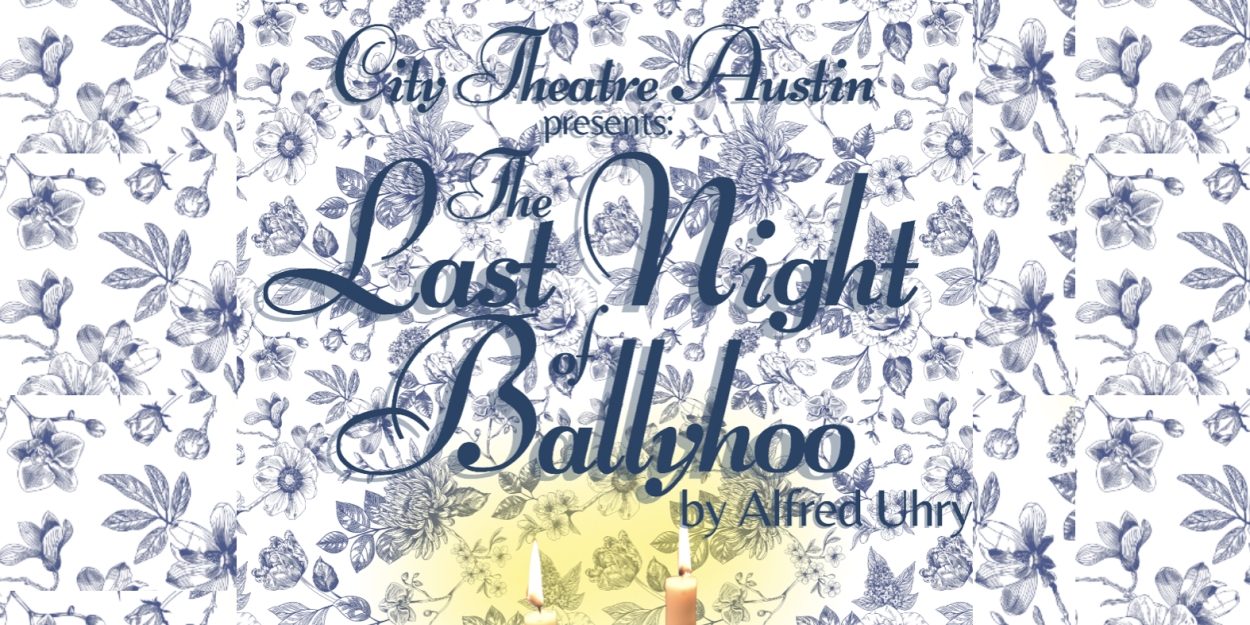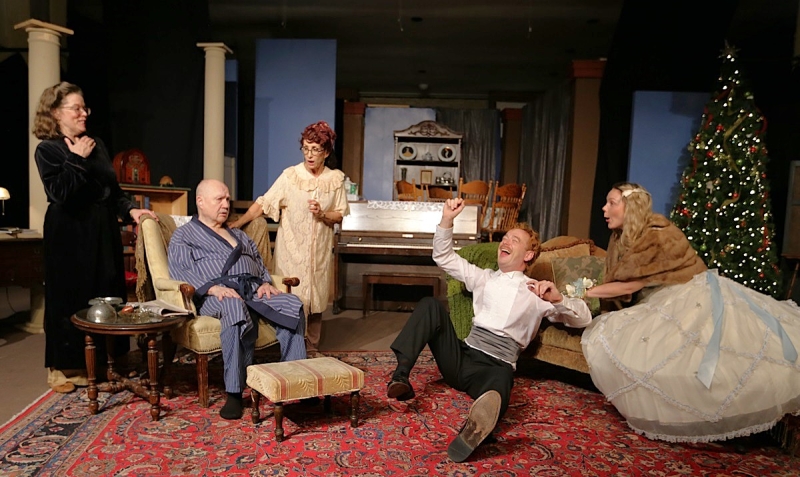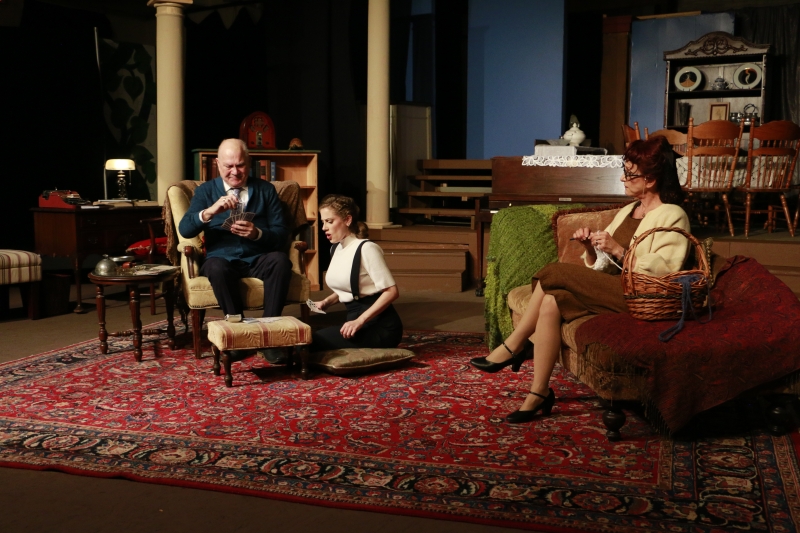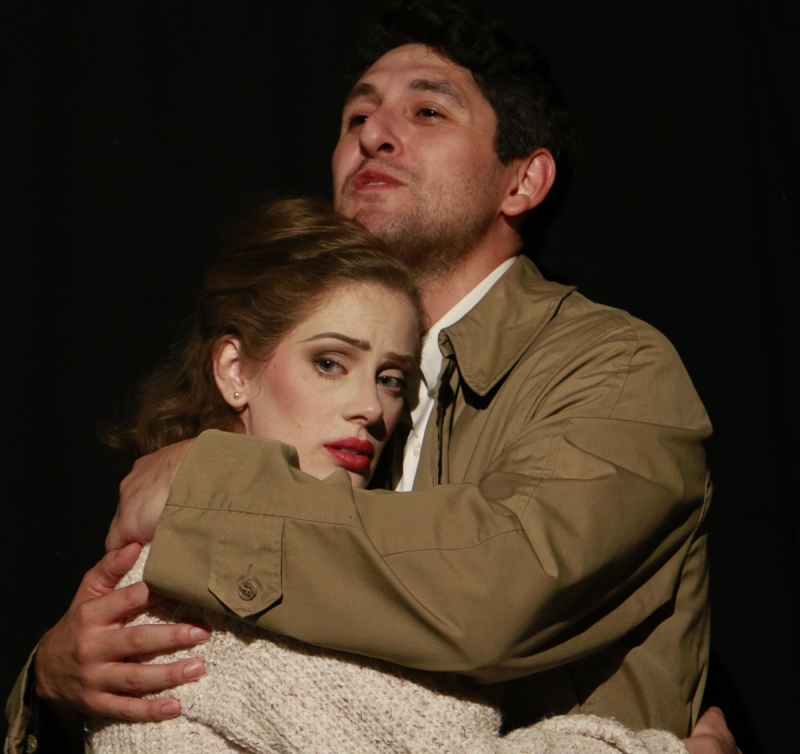Review: THE LAST NIGHT OF BALLYHOO at City Theatre Austin
Don't miss this theatrical gem. Now playing through November 24th, 2024

Alfred Uhry’s The Last Night of Ballyhoo, set in Atlanta during the 1939 premiere of Gone with the Wind, masterfully explores themes of identity, assimilation, and prejudice within the Jewish community. Winner of the Tony Award for Best Play and the Pulitzer Prize, the work pairs tender family dynamics with a scathing critique of societal divisions. Its themes resonate profoundly in today’s America, where questions of identity, belonging, and systemic discrimination remain as urgent as ever.
At the heart of The Last Night of Ballyhoo lies the question: "What does it mean to belong?" The play delves into the lives of the affluent Freitag family, German Jews who distance themselves from Eastern European Jews while striving for acceptance in Atlanta’s predominantly Christian society. Their efforts culminate in Ballyhoo, an elaborate debutante ball for Jewish high society. This tension between self-identity and societal expectations feels eerily contemporary and relevant in today’s America.

The Last Night of Ballyhoo
PC: City Theatre Austin
Best known for Driving Miss Daisy and Parade, Alfred Uhry has a gift for blending humor with heartbreak, crafting stories that make each character’s journey deeply relatable. In The Last Night of Ballyhoo, the relationships are both straightforward and layered, with conversations that balance the controversial and the mundane—capturing the contradictions inherent in the human experience. The cast delivers uniformly strong performances, each member deserving praise for their finesse in bringing Uhry’s nuanced text to life.
Sara Barber skillfully portrays Lala Levy, the socially awkward young woman who longs to belong to the social circles she deems acceptable. Alongside her love interest Peachy Weil, played with intended and hilarious arrogance by Matthew Hubble, they represent those who avoid challenging societal norms—even when they are morally questionable—preferring the comforts that money and social acceptance offer to those who belong.
Tracy Hurd delivers a nuanced performance as the determined Boo Levy, Lala’s mother whose sole purpose in life is to secure her daughter’s place in mainstream society. Her sharp, tongue-in-cheek conversations with her brother and sister-in-law provide authentic social commentary, infused with the kind of humor you'd found in any American household in the 30s -thus proving that ethnic and religious differences were not that different at all.
Michael Harlan as Adolph Freitag brings charisma and depth to the role of the family patriarch. A veteran of the Austin theatre scene, Mr. Harlan infuses Adolph with authentic wit and wisdom.

The Last Night of Ballyhoo
PC: City Theatre Austin
Griffin Gardner as Reba Freitag, Sunny’s widowed mother, shines with her portrayal of the unassuming wisdom and comedic insight of a character who cuts through the family’s pretensions with humor and clarity.
Shanaya Dixon is compelling as a young, intelligent, and progressive Sunny Freitag, sharply contrasting with her family’s traditionalism. Her love interest, Joe Farkas is portrayed by Joshua Nunez as a timid young New Yorker and Eastern European Jew, whose subtle sense of being “othered” suggests his unspoken feelings of discrimination, even within his own Jewish community. Their romantic involvement drives the central conflict of identity and acceptance.

The Last Night of Ballyhoo
PC: City Theatre Austin
Under the meticulous guidance of director Payton Traham, the show flawlessly exposes our flawed humanity. The cast brings to life the complexities of being Jewish in a deeply conservative Christian neighborhood, tackling truths, pain, and emotionally charged themes with depth and authenticity.
The set designed by Payton Trahan, evokes the genteel charm of a 1939 Southern home, complete with period-appropriate furnishings and a sense of understated elegance (Eureka Theatrical, Andy Berkovsky, Gene Berry).
The costumes in The Last Night of Ballyhoo are a visual feast, beautifully evoking the glamour of 1939 while subtly reflecting themes of class and identity. The Ballyhoo party gowns, in particular, are strikingly stylish, showcasing the undeniable influence of Hollywood’s golden age on fashion—elegant, dramatic, and utterly chic. While perhaps a touch extravagant for Lala’s character, they perfectly capture the aspirational tone of the event. Another standout detail is the shoes—each pair impeccably chosen to complement the outfits and enhance the mood of every scene. This thoughtful design highlights Sue Breland’s keen eye for both historical authenticity and storytelling through fashion.
Although the play is set in 1939, its themes remain relevant today. While German Jews may not view Eastern Jews as "others," what about other social or racial groups? Have we truly learned not to categorize and marginalize those we consider different? Or are we still failing to recognize that, beneath the surface, we are all simply human beings? In The Last Night of Ballyhoo, Payton Trahan and City Theatre Austin have created a MUST-SEE production that showcases the brilliance of Uhry’s work, urging us to confront the biases we carry and perpetuate, while encouraging a deeper introspection into our own flaws.
Duration: 2 hours and 30 min including intermission.
The Last Night of Ballyhoo
Book by Alfred Uhry
Directed by Guest Director Payton Trahan
Assistant Director Mikayla Hinds
Now playing through November 24th, 2024
Thursday through Saturdays at 8:00 PM
Sunday at 3:00 PM
City Theatre Austin
Genesis Creative Collective
1507 Wilshire Blvd. Austin 78722
Reader Reviews

Videos

